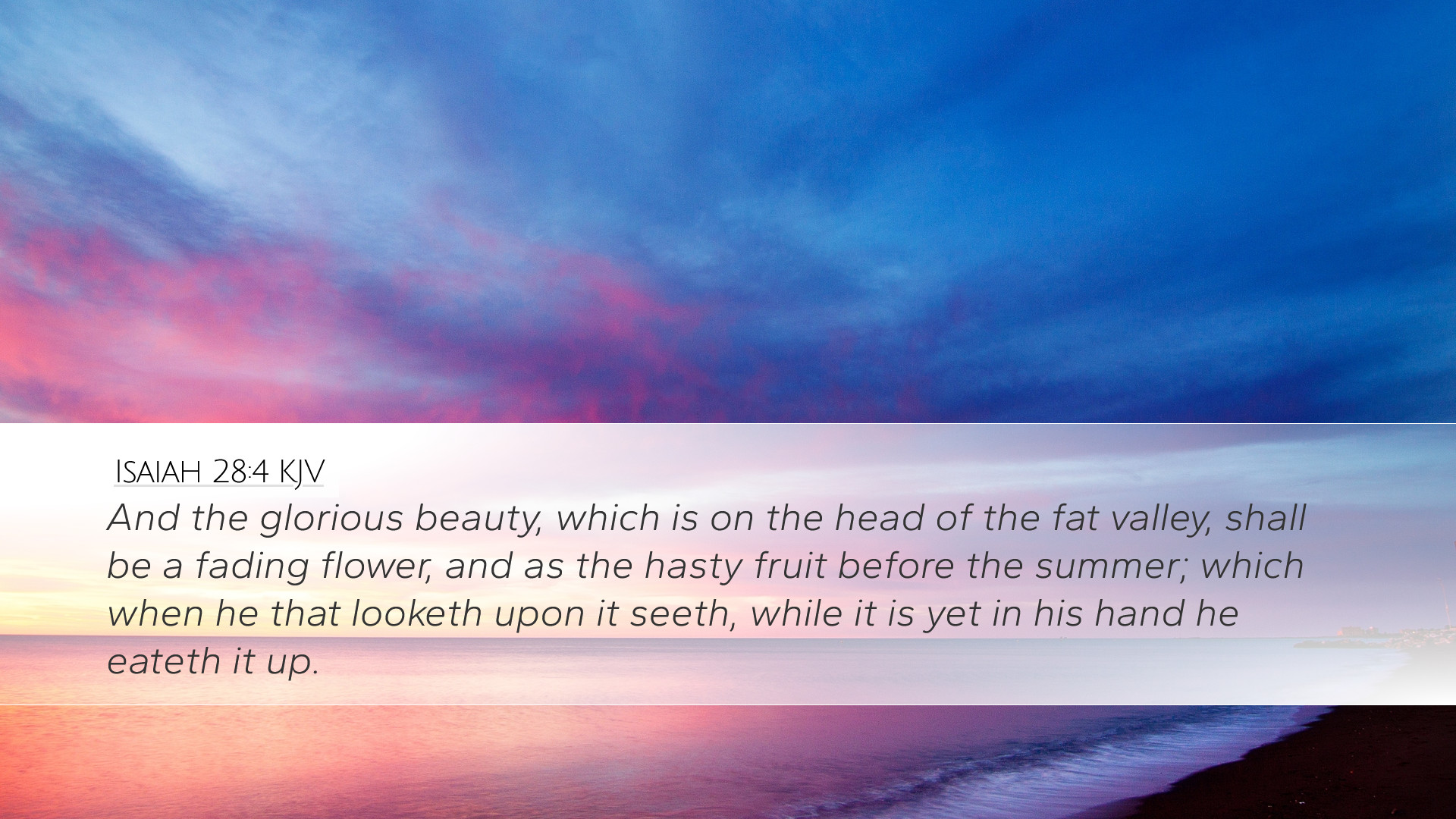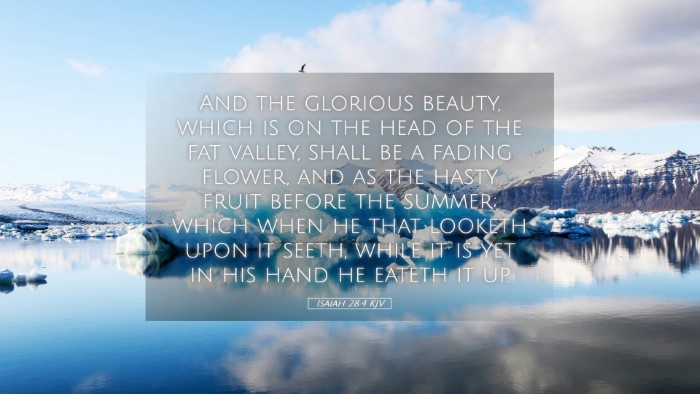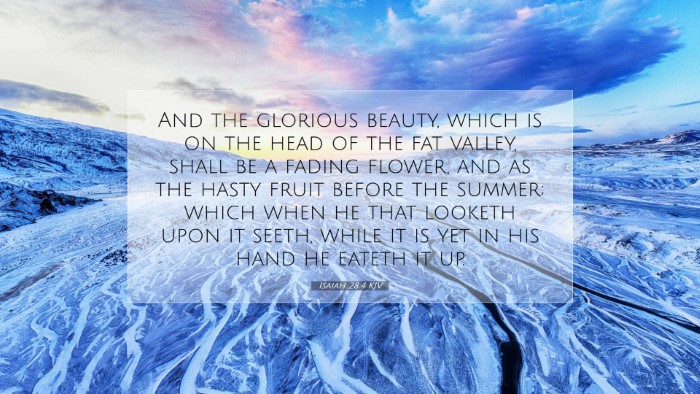Commentary on Isaiah 28:4
Verse Reference: Isaiah 28:4 (KJV) - "And the glorious beauty, which is on the head of the fat valley, shall be a fading flower, and as the hasty fruit before the summer; which when he that looketh upon it seeth, while it is yet in his hand he eateth it up."
Overview
Isaiah 28:4 is a vivid depiction of the fleeting nature of glory and beauty, a theme that resonates throughout the book of Isaiah. This verse not only addresses the superficiality of human pride but also serves as a poignant reminder of the transient nature of worldly accomplishments. Concomitantly, it reflects God’s judgment upon Israel, emphasizing the need for true spiritual sustenance.
Commentary Insights
1. Contextual Background
The context of Isaiah 28 is crucial for understanding this verse. The chapter addresses the spiritual condition of the northern kingdom of Israel and its leaders, who engaged in extravagant revelry while neglecting their covenant relationship with God. The corrupt and prideful leaders of Ephraim are symbolically represented as beautiful flowers that ultimately fade. This alludes not only to their impending destruction but also to the futility of relying on human strength and beauty.
2. The "Glorious Beauty"
Matthew Henry suggests that the "glorious beauty" refers to the pomp and splendor of the northern kingdom’s capital, Samaria. It emphasizes the stark contrast between its present grandeur and its future desolation. Their pride in temporal beauty distracts them from recognizing their spiritual decline. This "glorious beauty" serves as a metaphor for all that is external and superficial, reminding us that such things are vulnerable to decay.
3. The Approach of Judgment
Albert Barnes adds that the metaphor of "the hasty fruit before the summer" illustrates the suddenness with which God's judgment can come. Just as one expects to enjoy ripe fruit in season, the people of Israel were counting on continued prosperity without regard for their moral and ethical failures. The description highlights the irony that what appears to be a time of abundance is, in fact, an impending crisis.
4. Symbolism of the Fading Flower
Adam Clarke elaborates on the "fading flower" motif, noting that this imagery reflects both beauty and transience. Just as beautiful flowers bloom briefly before withering away, so too does human glory. The fading flower can be interpreted as a statement about the impermanence of human achievements. Clarke further connects this fading glory to the inevitable decay that sin brings in the lives of those who stray from God’s commandments.
5. The Danger of Complacency
The danger of complacency is evident in this verse. The Israelites, indulging in their current prosperity, failed to recognize the coming judgment. They were entangled in the allure of their accomplishments, which blinded them to their spiritual state. This serves as a warning to contemporary believers to remain vigilant and to prioritize their relationship with God above all else.
6. The Nature of True Sustenance
In contrast to the “glorious beauty” that is fleeting, the true sustenance and peace come from God. Matthew Henry emphasizes that real nourishment is not found in external splendor but in spiritual vitality. While the world distracts with its dazzling achievements, it is in the quiet trust in God where genuine fruitfulness lies. This verse invites reflection on what we genuinely value and depend on for sustenance.
7. Application for Today
Pastors, students, and theologians can draw from this verse significant applications for contemporary faith. In various areas of ministry, one must consider the tension between cultural expectations of success, represented by the “glorious beauty,” and the call to fidelity to God’s standards. This passage can inspire a re-evaluation of what we cherish as a community of faith. Are we, like Ephraim, allowing external influences to dictate our sense of peace and stability? Or are we rooted in the promises of God, which transcend the temporary nature of earthly adornments?
8. Conclusion
Isaiah 28:4 offers a powerful commentary on the nature of beauty and judgment. In blending human pride with the certainty of divine retribution, believers today are called to seek after the eternal rather than the ephemeral. As we reflect on this verse, let us commit ourselves to cherish our relationship with God, finding our true beauty in Him rather than in the fleeting achievements of life.


